Heads up! This article is part of a series on precision quilt piecing techniques. Make sure to read the previous installment of this series here.
The most efficient and accurate method for piecing a square in a square involves some waste. With this method however, you will be able to easily and accurately make any size square in a square without resorting to a Square in a Square Calculator for the cutting measurements, either online or in some remote reference material. Follow along as I take you through the precision technique basics of piecing a square in a square.
Crunching the Numbers
This method uses a large center square and four small, corner squares. The large center square is cut ½” larger than the finished measurement of the unit. For example if you wanted a 4” finished unit, you would cut the center square 4½” (4 + ½ = 4 ½).
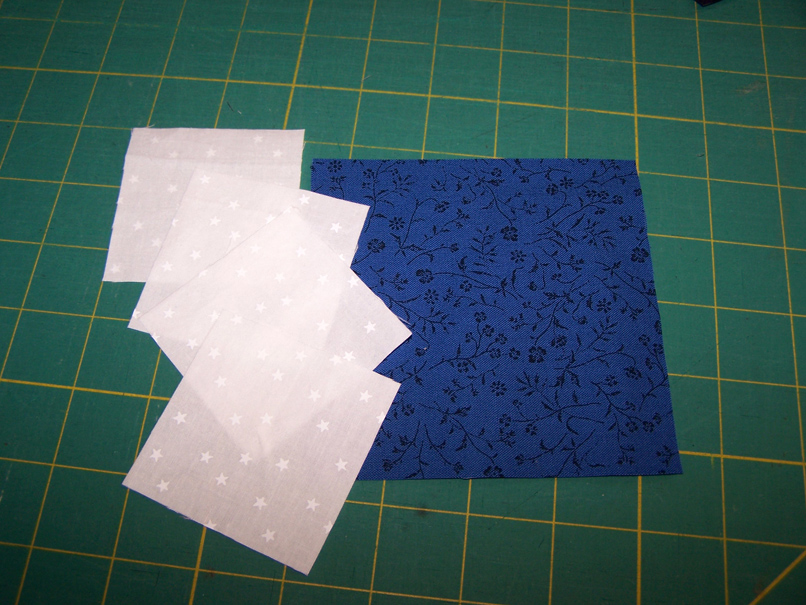 The four smaller squares are cut ½” larger than half the finished measurement of the unit. In the example, you would cut the smaller corner squares 2½” (half of 4 is 2 + ½ =2 ½).
The four smaller squares are cut ½” larger than half the finished measurement of the unit. In the example, you would cut the smaller corner squares 2½” (half of 4 is 2 + ½ =2 ½).
Piecing it Together
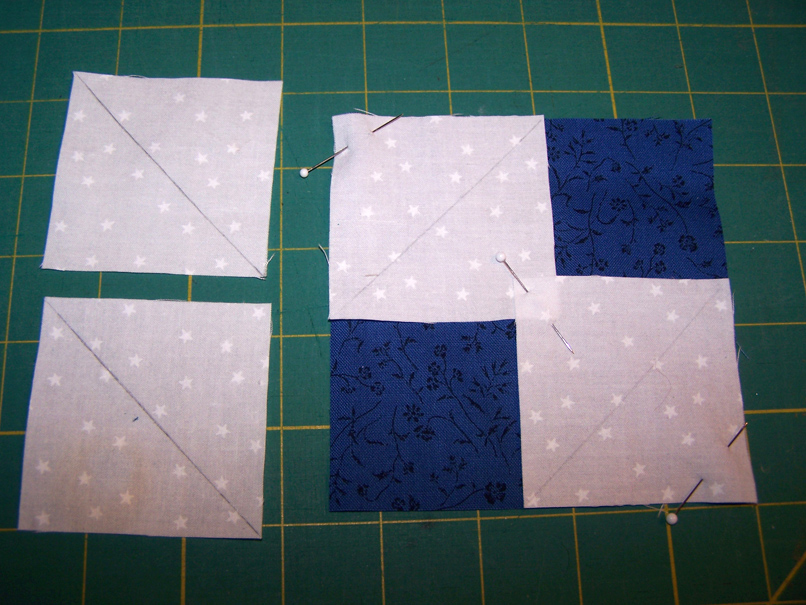 Step 1: Draw a diagonal line on the wrong side of each of the four corner squares. Position two corner squares on two opposite corners of the large center square with the drawn lines running across the corner of the large square. Stitch on the drawn line, not on each side as we have been doing for previous units.
Step 1: Draw a diagonal line on the wrong side of each of the four corner squares. Position two corner squares on two opposite corners of the large center square with the drawn lines running across the corner of the large square. Stitch on the drawn line, not on each side as we have been doing for previous units.
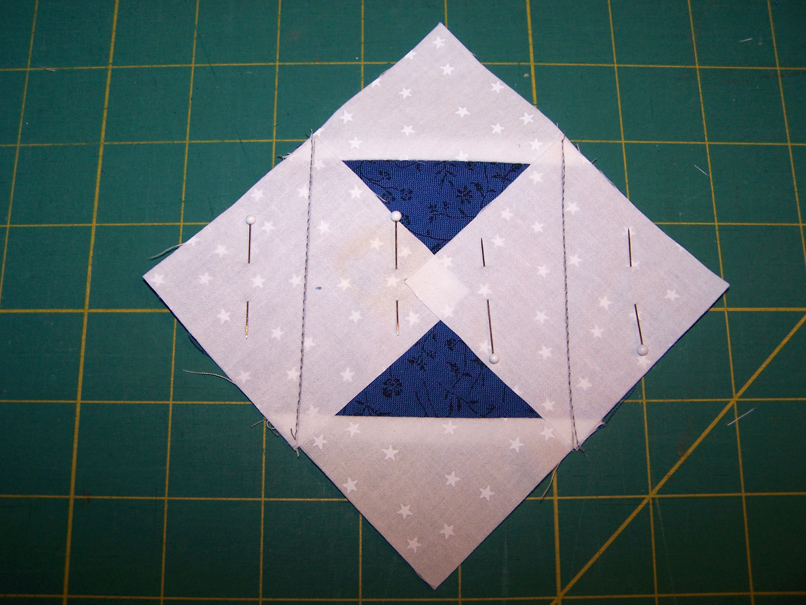 Step 4: Position the other two corner squares on the open corners of the large center square with the drawn lines running across the corner. Stitch on the drawn line.
Step 4: Position the other two corner squares on the open corners of the large center square with the drawn lines running across the corner. Stitch on the drawn line.
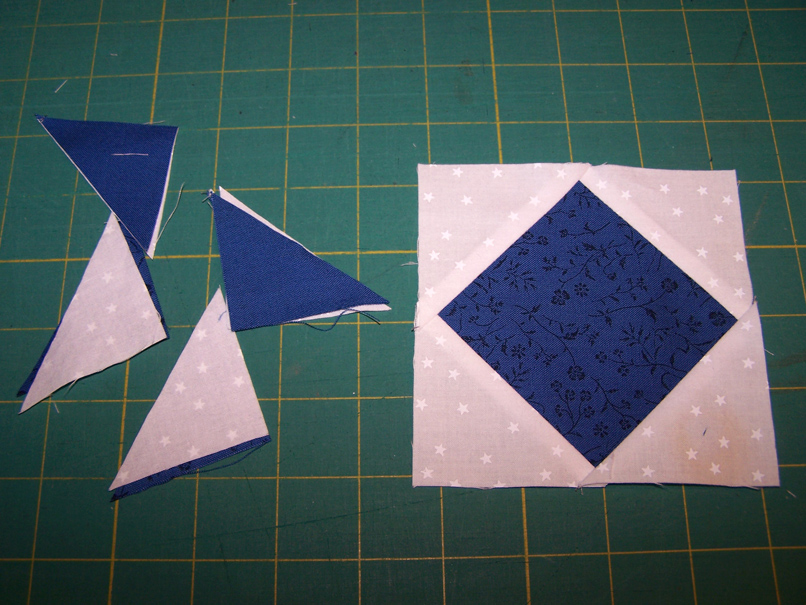 Step 6: Press the remaining corner triangles away from the center square. Although there is some waste, you will have an accurate square in a square of any size you wish to make.
Step 6: Press the remaining corner triangles away from the center square. Although there is some waste, you will have an accurate square in a square of any size you wish to make.
Step 7: To add corner triangles to a square that does not need to be a specific size, you will first need to determine the unfinished size of the unit. To determine the unfinished size of the unit, multiply the square by 1.414. For example, the house square measures 5½”. Multiply this number by 1.414 to equal 7¾”. The unfinished size of the unit is 7¾”.
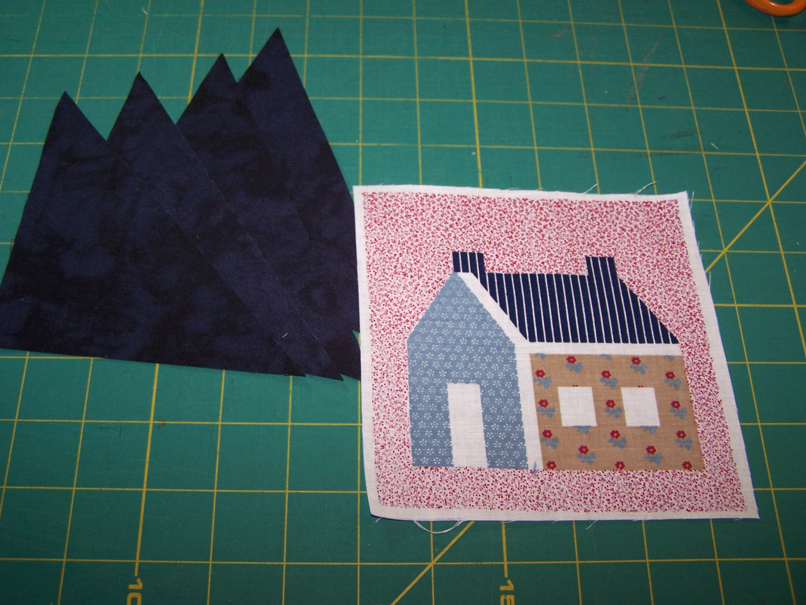 Step 8: For the corner triangles, cut two squares half the size of the unfinished unit plus 1”. For the house square, you would divide 7¾” by 2 and add 1” (7¾ divided by 2 = 3.875 + 1 = 4.875, round the number up to 5”). It is better to have them a little larger for trimming down to size. After cutting the two corner squares, cut the squares in half for the four corner triangles.
Step 8: For the corner triangles, cut two squares half the size of the unfinished unit plus 1”. For the house square, you would divide 7¾” by 2 and add 1” (7¾ divided by 2 = 3.875 + 1 = 4.875, round the number up to 5”). It is better to have them a little larger for trimming down to size. After cutting the two corner squares, cut the squares in half for the four corner triangles.
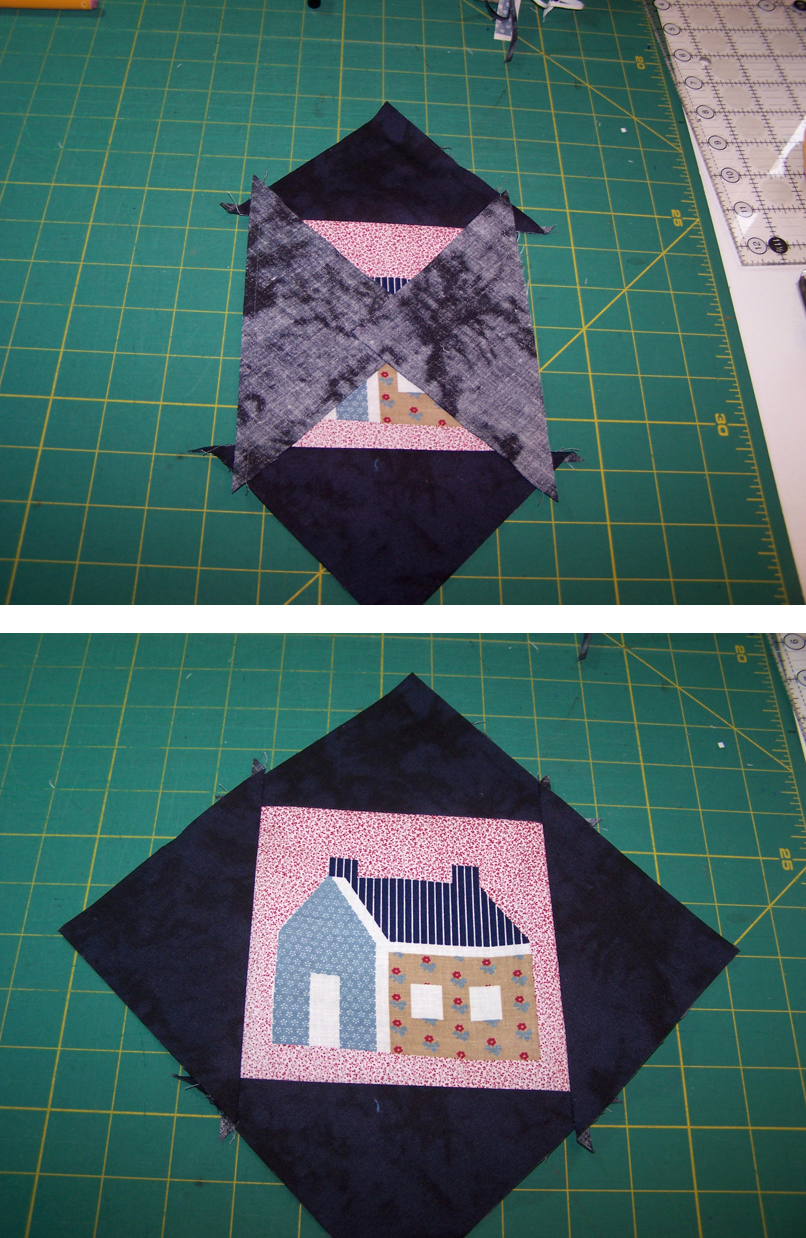 Step 9: Center the bias edge of two triangles on opposite sides of the center square, right sides together. I like to fold the center square and the triangles in half and give them a little pinch to make a tiny crease for centering the pieces. Stitch along the edge using a scant ¼”. Press the triangles away from the center square.
Step 9: Center the bias edge of two triangles on opposite sides of the center square, right sides together. I like to fold the center square and the triangles in half and give them a little pinch to make a tiny crease for centering the pieces. Stitch along the edge using a scant ¼”. Press the triangles away from the center square.
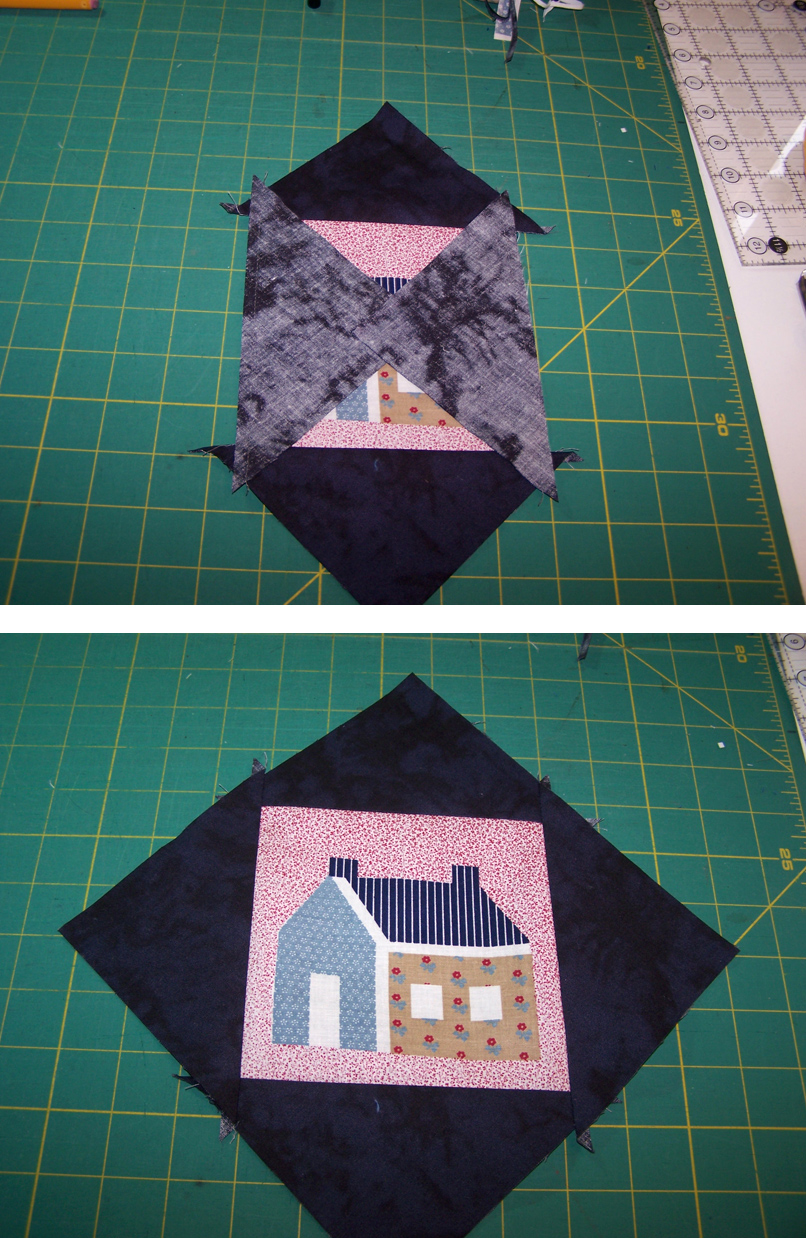 Step 10: Center the two remaining triangles on the open sides of the center square. Stitch along the edge using a scant ¼”. Press the triangles away from the center square.
Step 10: Center the two remaining triangles on the open sides of the center square. Stitch along the edge using a scant ¼”. Press the triangles away from the center square.
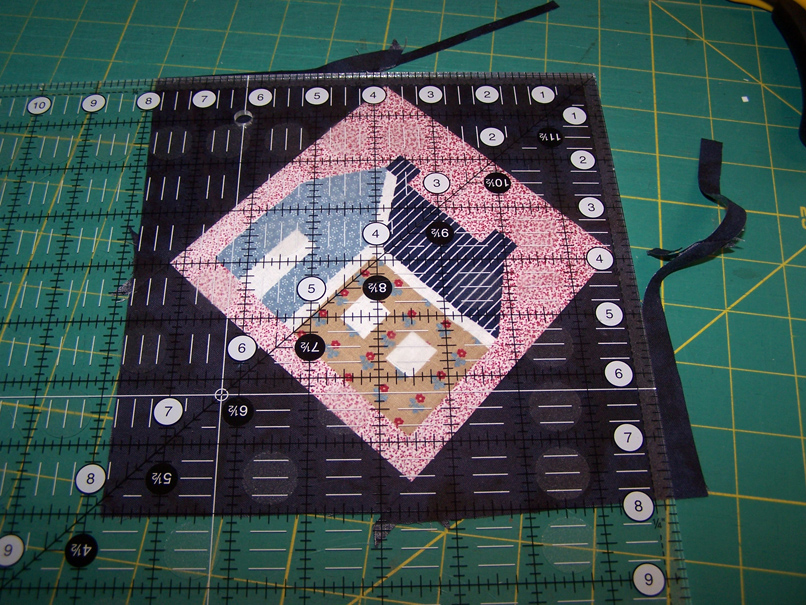 Step 11: The square in a square is now ready for trimming. For larger units, use the 12” square up ruler. Align the ¼” line on the ruler along two points on the unit, checking for accurate alignment of the other two points to make sure the unit is square. Trim two sides.
Step 11: The square in a square is now ready for trimming. For larger units, use the 12” square up ruler. Align the ¼” line on the ruler along two points on the unit, checking for accurate alignment of the other two points to make sure the unit is square. Trim two sides.
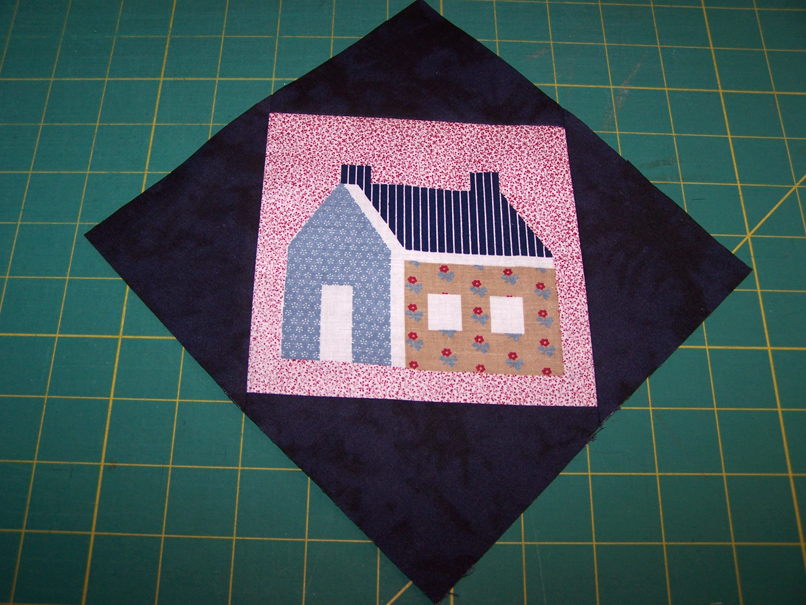 Step 12: Turn the unit around and align the ¼” line on the ruler along the other two points on the unit. Check to make sure the other edges are square. Trim the remaining two sides to complete the project.
Step 12: Turn the unit around and align the ¼” line on the ruler along the other two points on the unit. Check to make sure the other edges are square. Trim the remaining two sides to complete the project.
See you next time when we will discuss triangle in a square units in the next installment of this series.
More in this Series:- Precision Quilt Piecing Part 1: Squares
- Precision Quilt Piecing Part 2: Half-Square Triangles
- Precision Quilt Piecing Part 3: Quarter & Triple Triangle Squares
- Precision Quilt Piecing Part 4: Flying Geese
- Precision Quilt Piecing Part 6: Triangle in a Square
- Precision Quilt Piecing Part 7: Fancy Half-Square Triangle
- Precision Quilt Piecing Part 8: Blocks and Borders
Get in touch! Leave a comment or email editor@nationalquilterscircle.com.
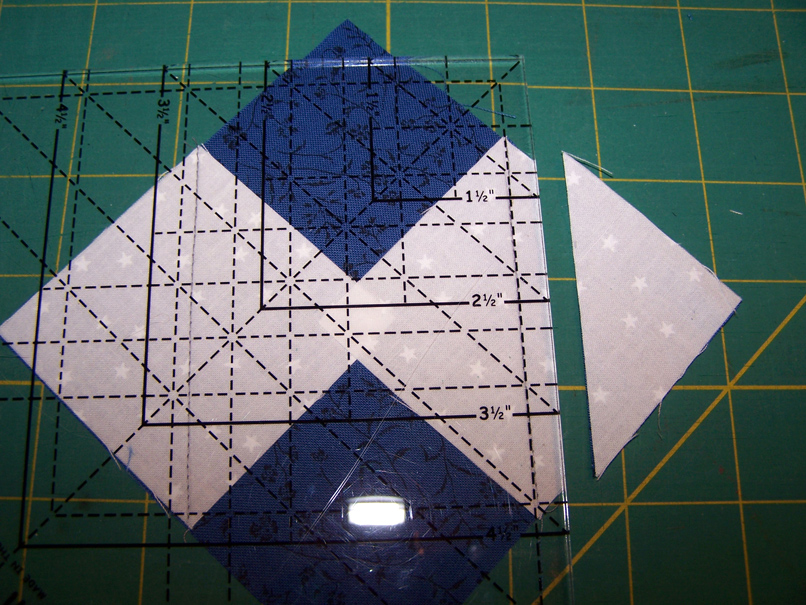
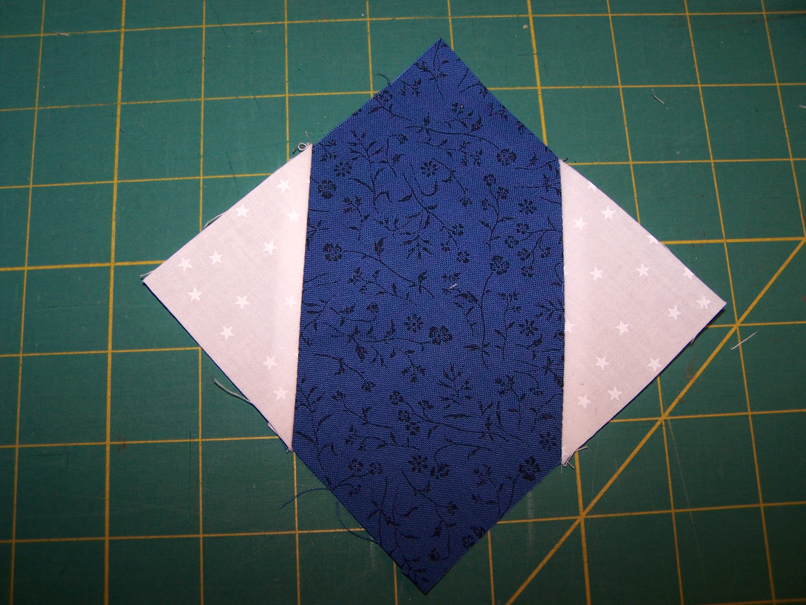
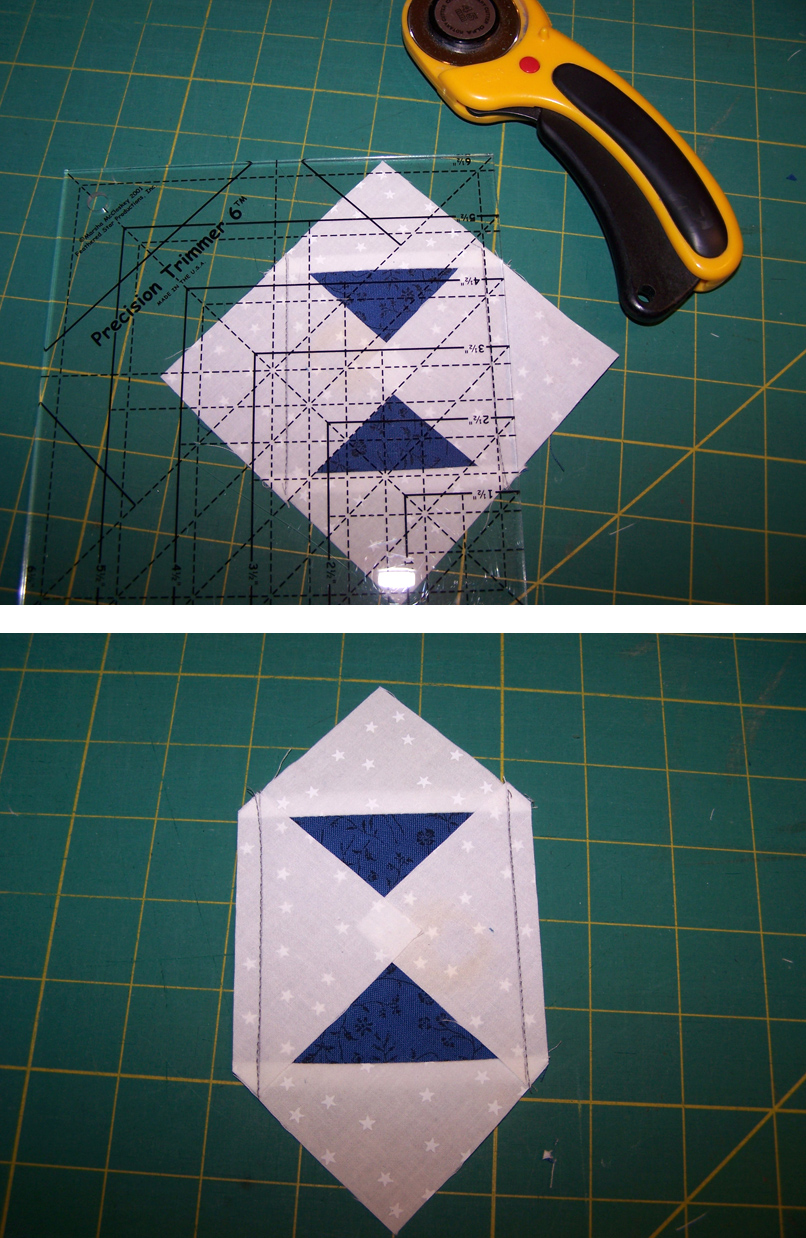
Thank you for sharing these instructions.
très bien expliqué - merci
i have searched for the answer to this forever! there are so many "formulas" out there that don't make sense! this is the easiest and best instruction! so simple!!!!! thank you!
Always like easy methods
Thanks for this helpful basic information. It has opened the door so I can turn my many irregularly-shaped scraps into blocks of my choice.
I have been quilting for a few years now, and going about it the hard way. I mostly taught myself, and have taken some classes. After reading your ideas I can't wait to try your tips. They make sense, and are less time consuming.
very helpful thanks
I just discovered your Precision Quilt Piecing Series. I have read them. They sound awesome. Can't wait to actually try them out. Thank you so much for taking the time to research this and presenting it in easy to understand directions. I'm new to quilting so have been learning much on my own - trial and error. Thank you again for your help